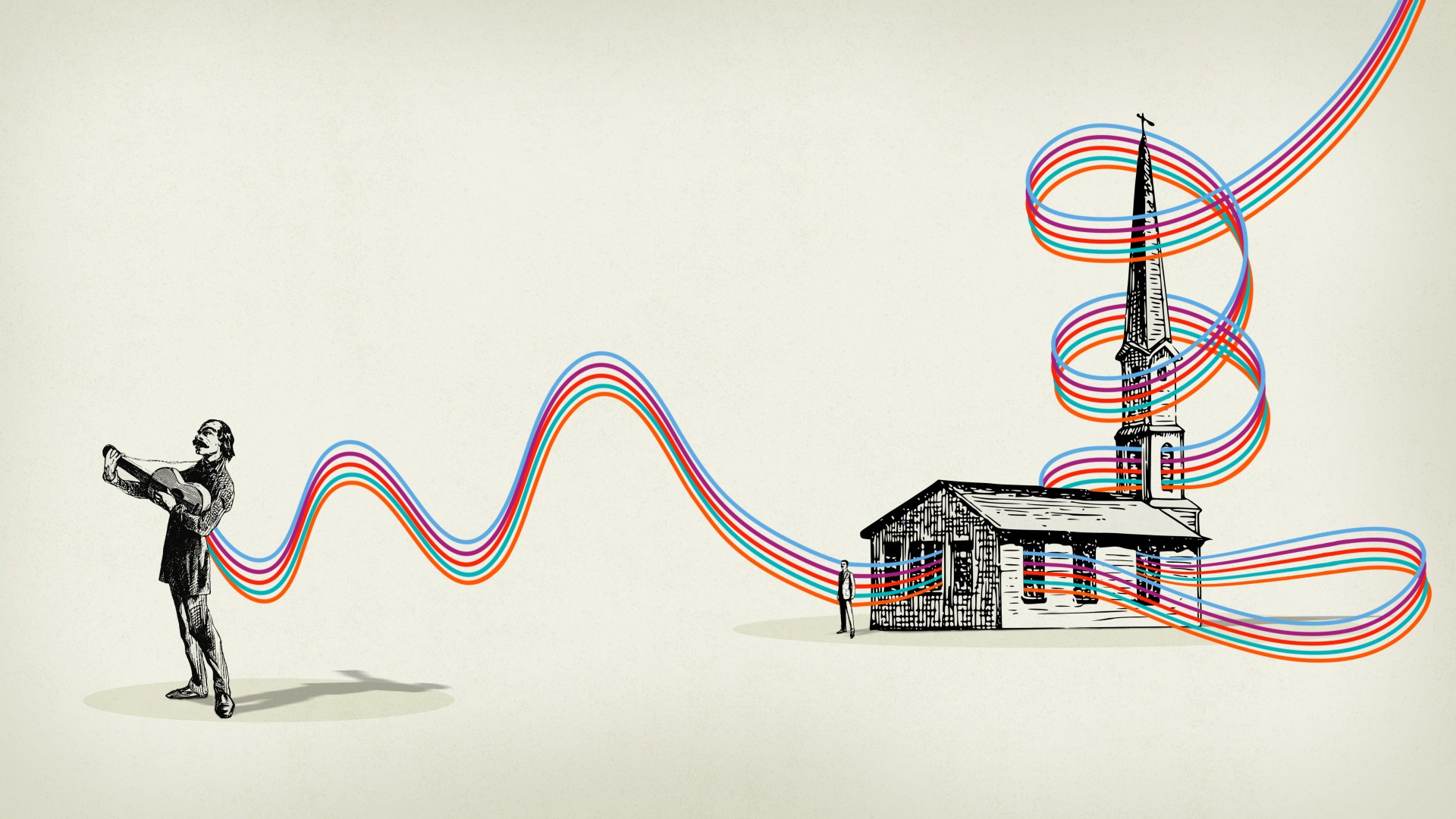Recently, I recorded a collection of cover songs written by legendary songwriters who have influenced me. I love writing songs for the encouragement of the church, but my aim with this project was to hold up a wider view of God’s hope for the world through other people’s stories: songs of love and disappointment, uncertainty and indecision.
We gathered in a dimly lit studio near El Paso filled with vintage Gibson guitars, guitars with no names, amplifiers, tape machines, and worn leather couches. We leaned over scribbled chords and borrowed lyrics on scraps of paper to see what we could make for a new moment.
It wasn’t a collection of worship songs or hymns, but we lifted up our hearts to God just the same. Songs by seekers and doubters can sometimes tell the straight truth. They can offer us a lens to look through our experiences to see and long for God’s presence in the broken places. “There is a crack in everything,” as Leonard Cohen wrote. “That’s how the light gets in.”
Since recording this project, the band and I have been out playing these songs alongside my own songs and Psalm tunes. While shaping the set list for the tour, I was admittedly a little tentative. Would the Cranberries’ “Dreams” resonate alongside “Flourishing”—written from the words of Psalm 119—in a church and a neighborhood theater?
But it turns out that there’s a blend and blur between the Psalms and Bob Dylan, between Isaiah and U2. I’ve been convicted and comforted in unexpected ways while singing these songs together and hearing God speak through both sacred texts and secular poetry.
These juxtapositions have brought about quiet surprises. Singing U2’s “One” each night, I have heard God’s voice convicting me with a call to unity over discord:
Love is a temple
Love the higher law …
One love, one blood, one life, you’ve got to do what you should
One life, with each other, sisters, brothers
Whether I am singing David’s words from Psalm 42 or The Killers’ “Heart of A Girl,” I am moved to sing all these songs equally as a form of prayer. In “Heart of A Girl,” singer Brandon Flowers echoes the invitation of the Psalms as he tells a story of someone who’s “got all night to listen to the heart of a girl.”
Every time, I think of the ways I have been looking for my place in this world and am assured again that God wants us to find our place in him. In the middle of the night, or when all other friends can’t be found, there is one who hears me, who knows every word I speak before I speak it (Ps. 139:1) and who will listen and care about every concern that we lay out before him.
Singing these songs reminds me that our real lives are full of contradiction and consequence. I have seen evidence of God’s presence in the sanctuary, and I’ve seen sanctuaries that felt like an empty shell.
Inside the context of the church, there are creeds and baptisms, there’s Communion and the unfailing truth of Scripture, and there’s a shared life in Christ that is the exclusive nature of belonging to the family of God. But outside the church, God’s voice is speaking too: along the roadsides, in the clubs, classrooms, and cubicles where we work and live.
The writer of Hebrews tells us that in these last days, God speaks to us by his Son, by his Spirit (Heb. 1:2). Today, when I tune my ears to listen, I discover he is still speaking to us in this world he has made and that every part of it belongs to him (Ps. 24).
Yes, we Christians are to guard our hearts. But if we shut our ears to all that is outside the church, we risk missing God’s invisible qualities on display all around us (Rom. 1:20). When we listen critically to secular songs and artists, we can identify a wider expression of our experience as his people—and can sometimes receive a fresh opportunity to see and know him. I sing these borrowed songs as a testimony of grace. And I put my ear to the ground, listening for the resonance of his voice.











